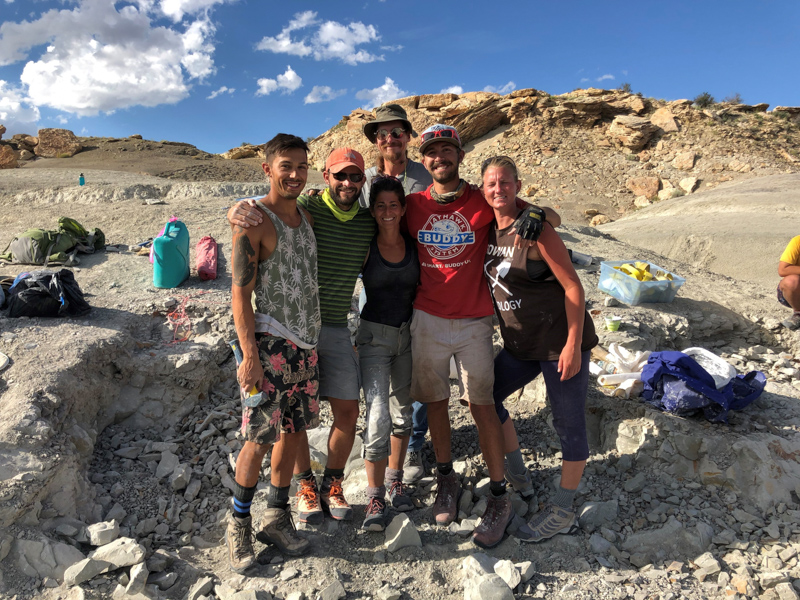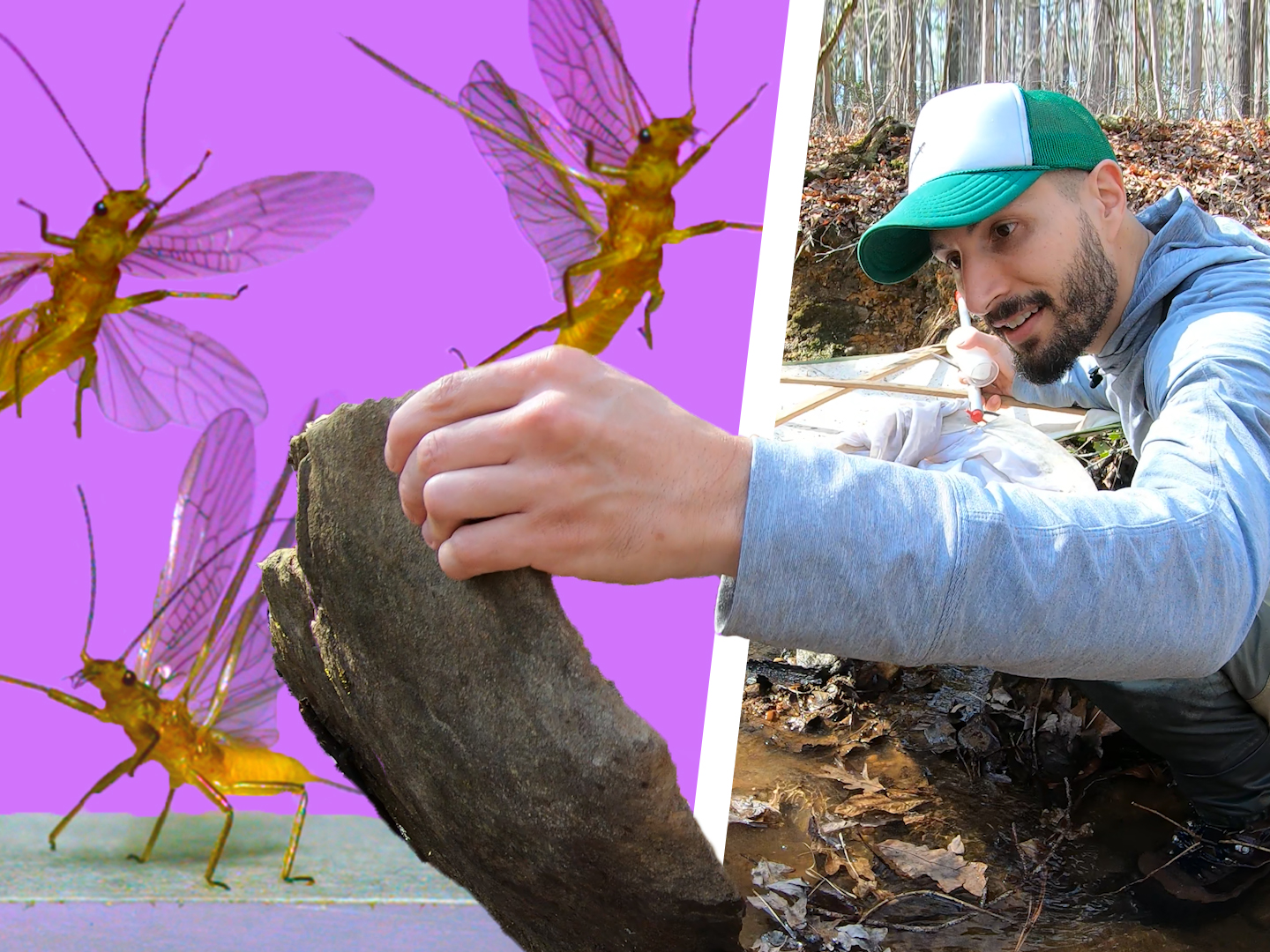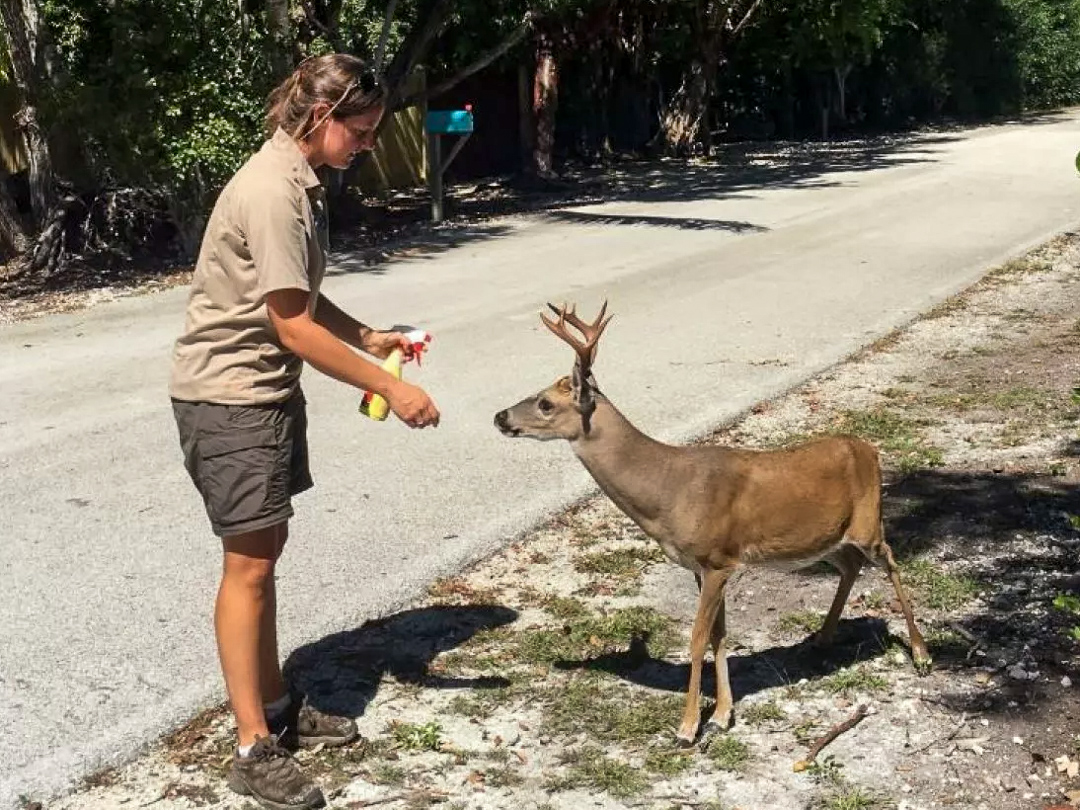
From live alligators to DIY steamboats, Museum hosts Triangle SciTech Expo April 23
April 12, 2022
[RALEIGH, N.C.] — Make your own candle-powered steamboat, watch robots tackle the monkey bar challenge, and meet live “animal architects,” including an American alligator and a curly hair tarantula, that design and build their own homes. Join us for Triangle SciTech Expo — the first in-person event in over two years at the North Carolina… Read More >

Zanno wins NC State outstanding mentor award
April 7, 2022
Lindsay Zanno (center) and colleague Ryan Tucker (center left) with current and former NCSU graduate students from left to right: Haviv Avrahami, Jens Kosch, Evan Jevnikar, Alison Moyer. Museum Head of Paleontology Lindsay Zanno has received the 2021 Outstanding Graduate Faculty Mentor Award in the Biological and Life Sciences category from NC State Graduate School…. Read More >

New Video: How Aquatic Insects Can Help Fight Pollution
April 4, 2022
From Dr. Adrian Smith, Head of the Museum’s Evolutionary Biology & Behavior Lab: “Did you know that describing new species of aquatic insects, like stoneflies, can help monitor freshwater pollution levels? I didn’t. But I spent a few days with some researchers learning about their work and how the entomology has an extraordinary mix of… Read More >

Conservation Conundrum: Key Deer
April 1, 2022
A Florida Keys National Wildlife Refuge biologist feeds a Key Deer food laced with an anti-parasitic drug that combats flesh-eating screw worms, before marking it with non-toxic paint to indicate it’s been dosed. Photo: Chris Eggleston/FWS. Key deer have been in the news quite a bit lately due to questions about their long-term survival and… Read More >

‘Jurassic Park’ influence on ancient DNA research is subject of new book by NC science historian
March 31, 2022
“Ancient DNA: The Making of a Celebrity Science,” a new book from science historian Elizabeth Jones (pictured above), reveals the untold story of the rise of the new scientific field of ancient DNA research, and how “Jurassic Park” and popular media influenced its development over the past 30 years. Jones is the coordinator for Cretaceous… Read More >

